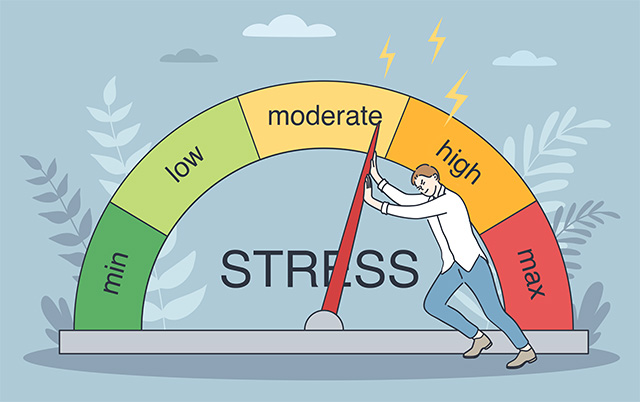Stress Awareness Month has been recognized every April since 1992, and this year it seems particularly relevant to highlight.
The term stress is used to describe many different emotional and physical responses including agitation, anger, anxiety, worry, fear and depression. Understanding stress, its impact, and developing ways to cope is a pivotal part of the work psychologists do in therapy with their patients.
Since 2007, the American Psychological Association (APA) has commissioned an annual nationwide survey that examines the state of stress across the country. The Stress in America™ survey measures attitudes and perceptions of stress among the general public and identifies current sources of stress, the positive and negative behaviors used to manage stress, and the impact of stress on emotional and physical health. The survey is published on an annual basis and is available to the public for free.
Learning about the things that are stressing others out can can be a validating experience and so we aim to summarize some of the The Stress in America™ survey data here.
As of March 2022, people reported feeling stressed about:
- Price increase of everyday items such as gas, energy, grocery (87%)
- Supply chain issues (81%)
- Global uncertainty (81%)
- Russia’s invasion of Ukraine (80%)
As a result of this stress, Americans appear to be coping in unhealthy ways. For example, 23% of adults report drinking more alcohol while 56% have experienced undesired weight changes.
The majority of Americans are feeling this stress while still struggling to deal with the prolonged pandemic. Two-thirds (63%) of adults report that their life has been forever changed by the Covid-19 pandemic.
So, what can we do? Experts agree that there are two main approaches to dealing with the negative effects of stress – eliminating/reducing the triggers and increasing the ability to cope. These approaches can be used in isolation but are most effective when used together.
The first requires an acknowledgement of what is causing stress and then eliminating or significantly reducing them one by one. For example, reducing financial stress would require modifying the situation in some way. This could look like asking for a raise, changing jobs, or creating a spending budget. The other main approach to dealing with stress is by increasing the ability to effectively cope. Examples of ways to improving coping include getting regular sleep and exercise, practicing relaxation or mindfulness techniques, modifying maladaptive thoughts, and increasing pleasant activities. In other words, we can identify the problem and work to make any potential changes while simultaneously boosting our psychological immune system to better cope with the increase in stress.
Speaking with a therapist can often help a person develop a plan to change maladaptive coping and increase positive coping skills while simultaneously problem-solving ways to reducing stressful triggers. Regardless of your level of stress or type of stress, knowing the facts can help.
For complete data from The Stress in America™ Survey, visit apa.org.

